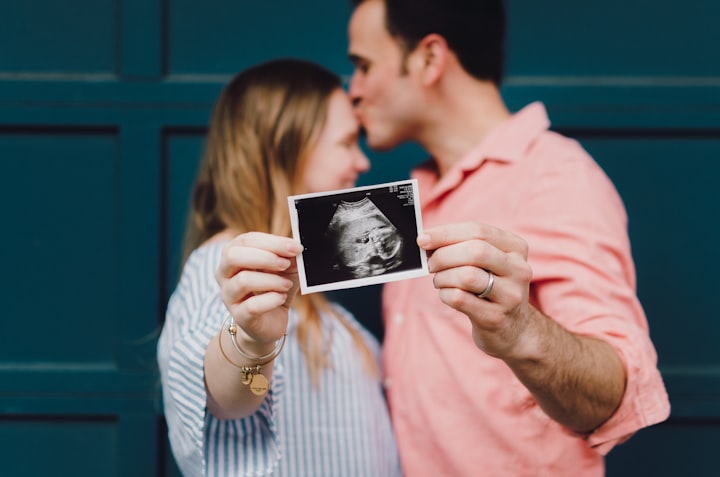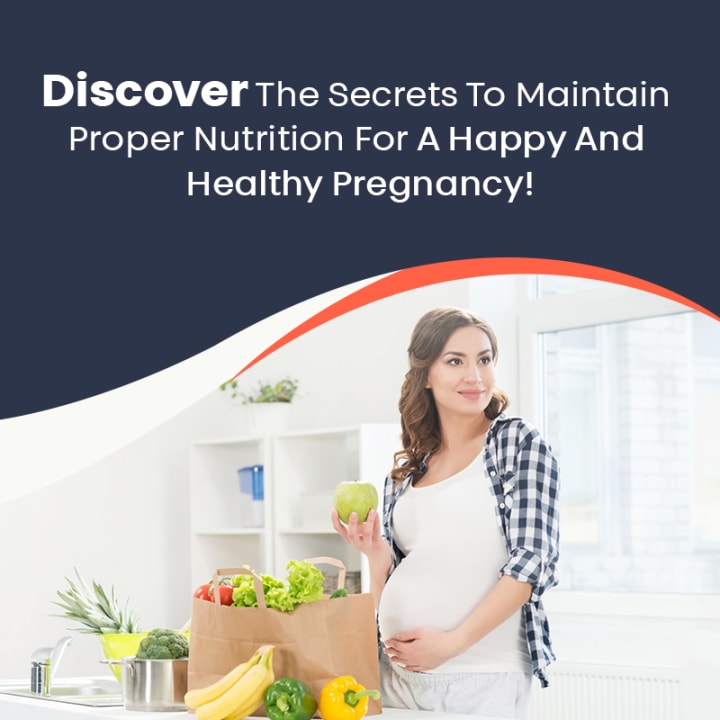
Eating a healthy and balanced diet is very important during this time to ensure the proper growth and development of your baby. Here are some pregnancy diet secrets to help guide you:
1. Eat a variety of foods: Make sure to include a variety of foods from all the food groups in your diet, including fruits, vegetables, whole grains, lean proteins, and healthy fats.
2. Increase your calorie intake: You'll need to consume an additional 300-500 calories per day during pregnancy, depending on your pre-pregnancy weight and activity level.
3. Stay hydrated: Drink plenty of water and fluids throughout the day to help prevent dehydration and constipation.
4. Limit your caffeine intake: It's recommended that pregnant women limit their caffeine intake to less than 200mg per day, which is equivalent to about one cup of coffee.
5. Avoid certain foods: Some foods should be avoided during pregnancy, including raw or under-cooked meat, fish, and eggs, unpasteurized dairy products, and certain types of fish high in mercury.
6. Take prenatal vitamins: Prenatal vitamins can help ensure that you're getting enough essential vitamins and minerals, such as folic acid, iron, and calcium.
7. Listen to your body: Pay attention to your body and eat when you're hungry. Don't skip meals or restrict your calorie intake, as this can be harmful to both you and your baby.
8. Practice healthy snacking: Eating small, healthy snacks throughout the day can help prevent nausea and keep your blood sugar levels stable.
9. Don't forget about fiber: Make sure to include plenty of fiber-rich foods in your diet, such as fruits, vegetables, whole grains, and legumes, to help prevent constipation.
10. Stay active: Regular exercise during pregnancy can help you maintain a healthy weight, reduce stress, and prepare your body for labor and delivery. Just make sure to check with your healthcare provider before starting any new exercise routine.
Remember to always consult with your healthcare provider before making any major changes to your diet or lifestyle during pregnancy.
"Prenatal vitamins are essential for a healthy pregnancy."

What nutrients to take?
During pregnancy, it's important to make sure you're getting enough of the following nutrients:
1. Folic acid: This is important for the development of the baby's neural tube. Most prenatal vitamins will contain folic acid.
2. Iron: This helps to carry oxygen to the baby and prevent anemia. Foods high in iron include red meat, leafy greens, and beans.
3. Calcium: This is important for the development of the baby's bones and teeth. Good sources of calcium include dairy products, leafy greens, and fortified foods.
4. Protein: This is important for the growth and development of the baby. Good sources of protein include lean meats, beans, and dairy products.
5. Omega-3 fatty acids: These are important for the development of the baby's brain and eyes. Good sources of omega-3s include fatty fish, such as salmon and tuna.
What food and beverages to consume or avoid?
During pregnancy, it's important to consume a healthy and balanced diet, while avoiding certain foods and beverages that may be harmful to the baby. Here are some guidelines:
1. Consume plenty of fruits, vegetables, whole grains, lean proteins, and healthy fats.
2. Avoid raw or under-cooked meat, fish, and eggs, as well as unpasteurized dairy products.
3. Limit your intake of caffeine to less than 200mg per day, which is equivalent to about one cup of coffee.
4. Avoid alcohol and tobacco.
5. Stay hydrated by drinking plenty of water and fluids throughout the day.

What vitamins and supplements are good and necessary?
Most healthcare providers will recommend taking a prenatal vitamin during pregnancy to ensure that you're getting enough essential vitamins and minerals. Some of the most important vitamins and minerals to look for in a prenatal vitamin include:
1. Folic acid
2. Iron
3. Calcium
4. Vitamin D
5. Omega-3 fatty acids
What herbal and traditional products are beneficial?
It's important to be cautious when it comes to using herbal and traditional products during pregnancy, as many of them have not been thoroughly researched for safety. It's best to talk to your healthcare provider before using any herbal or traditional remedies during pregnancy.
What kind of slimming products to use to shed those pregnancy pounds after birth?
It's important to focus on a healthy and balanced diet and exercise routine after pregnancy to shed those pregnancy pounds, rather than relying on slimming products. It's best to talk to your healthcare provider and a registered dietitian for guidance on safe and effective weight loss strategies after pregnancy.





Comments
There are no comments for this story
Be the first to respond and start the conversation.